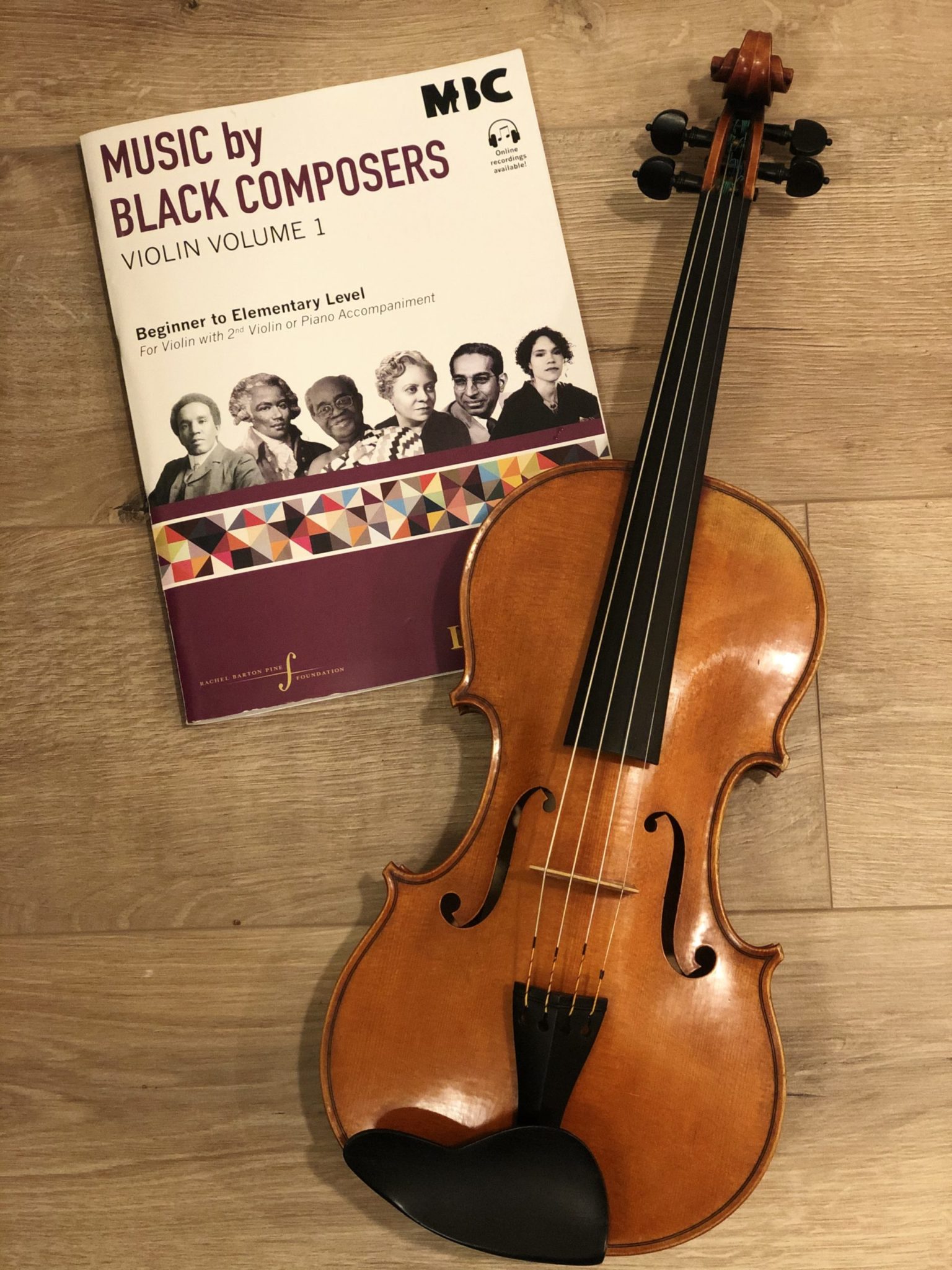
Courtesy of Ava Gehlen-Williams
Violinist and Yale Symphony Orchestra member Ava Gehlen-Williams ’24 strives to integrate music by Black composers into mainstream violin repertoire.
Earlier this month, Gehlen-Williams co-published a document titled “Integrating ‘Music by Black Composers: Violin Volume 1’ into The Suzuki Method for Violin Teachers and Students.” The document provides guidance on how nine musical pieces by Black composers — selected from a book called “Music by Black Composers: Violin Volume 1” — can be integrated into musical curriculums.
“There’s increasingly more of these great resources, like the ‘Music by Black Composers’ book, but it’s all treated as supplemental material,” Gehlen-Williams said. “It’s important that it is part of the core repertoire.”
Gehlen-Williams is a teacher following the Suzuki method — a teaching method that emphasizes immersion in a musical environment and applies the principles of learning acquisition to music. Suzuki students learn from a series of books with a set repertoire, and Gehlen-Williams’ document provides suggestions for pieces by Black composers that should be included in the repertoire and at what level they should be taught.
Gehlen-Williams co-published the document with her high school violin teacher, Sarah Pizzichemi. They both noticed that despite several teaching guides for works from the classical Western canon, there was less guidance about works by Black composers.
Gehlen-Williams explained that various books of violin music by Black musicians have been published, but it is difficult for teachers to find a way to integrate it into their curriculums. These books are often used as practice for sight reading — a practice that trains musicians to read on command — and are not viewed to have great pedagogical value.
YSO violinist Nanki Chugh ’22 said that she thinks Gehlen-Williams’ project is a “brilliant idea.”
“Creating resources that provide access to repertoire by Black composers is a really effective way to increase awareness and recognition for both instructors and students, as well as helping begin the process to integrate Black composers into our classical music ‘canon,’” Chugh said.
YSO violist Daniel Chabeda ’22 said that there are many pedagogical challenges to teaching music composed by Black composers, not due to a lack of classical repertoire, but rather because the historical exclusion of Black composers’ works from publication and audio recording “severely hinders present exposure to those great works.”
“Not only is this repertoire incredibly diverse and artistically meaningful to articulate, but learning works by Black composers requires the musician to grapple with the history of exclusion that keeps these awesome pieces out of classical canon, publication and discography,” Chabeda said. “Initiatives like [Gehlen-Williams’] could bring a lot of missing masterpieces into classical music.”
YSO violinist Andrew DeWeese ’24 agreed that difficulties of integrating music by Black composers into core pedagogical repertoire arise from the works’ systematic exclusion from the canon. The works are not performed with the same frequency, DeWeese said.
“I don’t believe there is a lack of repertoire by Black composers,” DeWeese said. “The more I have researched and the more I have attended concerts where these great pieces are played, the more I am made aware of just how much repertoire is out there. The greatest shame I see is the systemic refusal to perform the copious Black compositions out there.”
According to YSO violinist Janet Hsu ’22, there is a lack of repertoire by Black composers in the music world, but the larger problem is the fact that the music is not widely shared.
“I think any musician can benefit from learning music by Black composers to understand the diversity in classical music,” Hsu said. “Without studying music by Black composers, you miss out on so much depth in music, as well as immersion in a variety of styles, melodies and history.”
Gehlen-Williams has been teaching violin since 2014.
Marisol Carty | marisol.carty@yale.edu







